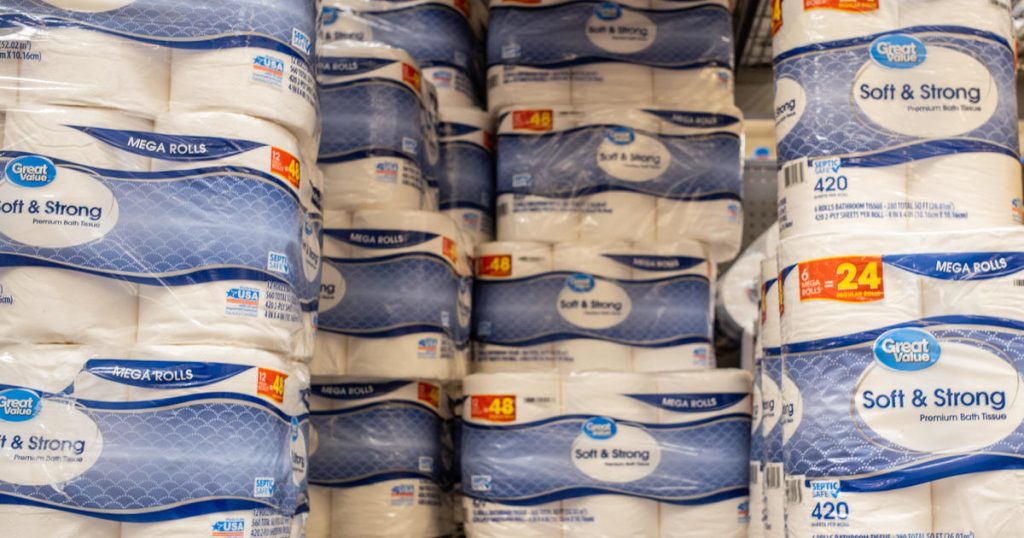As the port strike continues into its third day, concerns have arisen about a potential toilet paper shortage, leading some consumers to clear store shelves of the product. However, experts assure that there is no need to worry about a shortage of toilet paper as the majority of it is manufactured in the U.S. Consumers have been posting images of empty shelves at major retailers, reminiscent of the shortages experienced during the pandemic in 2020 due to supply chain disruptions caused by the health emergency.
The dockworker strike, which has affected 14 ports along the East and Gulf coasts, is not expected to impact the availability of toilet paper or other supermarket products such as meat and breakfast cereal. Experts explain that these products are largely produced domestically, reducing the impact of the strike on their availability. About 85% of U.S. tissue paper demand, including toilet paper, paper towels, napkins, and facial tissue, is supplied by U.S. tissue producers, according to the American Forest & Paper Association.
Retailers, such as Walmart, Target, Kroger, and Publix, have not yet issued statements regarding the potential shortage of toilet paper or other products due to the port strike. While Kimberly-Clark, the maker of Cottonelle and Scott brand products, stated that the strike is not currently affecting their ability to supply paper products or other items, expert advice suggests that stores may need to impose limits on items to prevent panic-buying or hoarding that could create shortages.
While certain items may be affected by the port strike if it extends beyond a few days, such as imported bananas and chocolate, beverages like imported beer and wine, and other food categories, most products consumed in the U.S. are domestically manufactured. This includes soap and detergent, as well as supermarket goods, signifying that panic-buying is unnecessary. Experts caution against stockpiling items, as the impact of the strike is likely limited to specific imported products that may become more expensive or difficult to find if the strike persists.
It is highlighted that the strike could affect more than 100 categories of food, including bananas and chocolate, as well as beverages such as imported beer and wine. The availability and cost of these items may be impacted if the strike continues for an extended period. However, the overall impact on the U.S. supply chain is expected to be minimal, as the majority of products consumed in the country are manufactured domestically. It is emphasized that there is no immediate need to panic or hoard supplies, as measures may be taken by retailers to ensure a steady supply of essential products.


